What We Do:
We specialize in the collection and analysis of data related to tribes in remote areas generally beyond the current reach of social science researchers. The new emphasis being given to tribal engagement in counterinsurgency signifies that such tribal studies are highly relevant to the various military and civilian government agencies tasked to implement this new approach. Repeated public statements by US military and civilian leaders now downplay military operations in favor of gaining the support of local communities, not only by bringing tangible benefits, but also by acting in a manner acceptable to tribal people. In order to accomplish this mandate, we believe it is essential to understand tribal culture and society as a prerequisite to productive interaction. Although the Pashtun tribes of Afghanistan and Pakistan are currently the subject of most counterinsurgency attention, there are significant cases in other parts of the world where formerly isolated tribes have been thrust into the arena of national and international conflict.
It is important to note that not all contemporary tribal conflicts are caused, or manipulated, by insurgent movements. On the contrary, political ideology may be an insignificant factor in some conflicts provoked principally by economic and social grievances. For example, certain tribes have reacted violently to the environmental damage caused by commercial natural resource extraction, often aggravated by large scale immigration by outsiders seeking employment in new development projects, and resulting pressures on the traditional way of life. Such cases include the tribal rebellions which have broken out in
- New Guinea, over the perceived harm caused by foreign mining concessions,
- Nigeria’s Delta, where natives of that region have rebelled against the environmental damage and corruption brought about by foreign oil exploitation,
- Niger, where the Tuareg insurgency is motivated in large part by mineral exploitation in their territory.
Besides government agencies and private business corporations, we consider that another key audience for tribal studies would be non-government agencies which have been tasked to provide humanitarian and development assistance in tribal areas. There are many cases of good intentions gone awry because of a deficient understanding of local tribal sensibilities and aspirations. Finally, there is a community of worldwide researchers and analysts whose interests are primarily academic in nature and we believe they would also be very interested in the information being provided by the Tribal Analysis Center.
There is a potential criticism of our mission that seems to hold that any research on tribal societies outside of purely academic parameters is inappropriate, especially if it contributes to national or foreign government project planning in tribal territories. This critique can take as a point of departure the efforts of British and French imperialists in the 19th and early 20th centuries to study tribesmen in order to colonize them more efficiently. It could be argued that modern anthropology grew out of a colonialist agenda. Nonetheless, after weighing the pros and cons, we conclude that it would unethical not use anthropological insights in these situations. Knowledge is better than ignorance. Our view is that tribesmen themselves benefit if outsiders descending upon them have an appreciation for tribal culture and a willingness to adjust their actions accordingly. We assume that it is exceedingly rare nowadays to find a pristine setting where tribal people can live without interaction with the outside world. Our hope is to make that inevitable contact as productive as possible for both sides.
As we have noted in preceding paragraphs, a wide variety of people are already interacting with tribal societies in different capacities. One of the distinguishing features of the Tribal Analysis Center is that we seek to gather their observations and insights and provide them to the public. Although we actively seek the input of trained anthropologists wherever possible, we do not limit ourselves to that pool of expertise, and seek to broaden substantially the scope of input. Thus we are just as interested in getting a detailed account of how a US military civic action officer, or a US AID official, dealt with a tribal jirga (council) in a particular Pashtun community, as we would in receiving an academic study of that same jirga. We seek both points of view, both experiences, and we do not hold one as necessarily better than the other. Thus we hope to provide a new forum for individuals with in-depth experience dealing with tribal peoples in diverse contexts to share their experiences. These observations we intend to post in the FIRST HAND NARRATIVES section of our web page. For this section we plan not only to reproduce the accounts of outsiders dealing with tribal people, but, most importantly, we would also like to acquire first hand narratives from tribesmen themselves, providing their views of their interaction with government officials, soldiers, aid workers and others who enter their communities.
In addition, we plan to post in the ACADEMIC DISSERTATIONS section of our web sites, as PDF files for free download, doctoral and masters dissertations from university students that cover relevant issues to our mission, and would otherwise likely not get much attention. We are also willing to post well written and researched term papers that graduate students may wish to make available. An example of this type of posting is the thesis written by Raja G. Hussain for the Naval Postgraduate School in Monterrey, California, titled , Badal: A Culture of Revenge, The Impact of Collateral Damage on Taliban Insurgency. This thesis is already available to the public on the Naval Postgraduate School website, but we intend to replay it to increase its exposure to the public, as we consider the content to be excellent. By the same token, we will search in other universities for relevant material and establish cooperating relationships with other centers of learning
As can be seen in some of the publications on the Pashtun tribes which we are already offering, we believe that it is crucial to have a thorough understanding of tribal history before attempting to make current assessments. The complete study of tribal history, its animosities and alliances, and genealogy of key leading personalities becomes an essential baseline to which an overlay of more current events is added. This allows some analytical predictions to be made as variables, such as the appearance of external actors, begin to have an impact on tribal populations. This approach will become increasingly important as additional nation-states begin to fail and city-states appear as relatively stable enclaves within re-emerging tribal regions, complete with warlords as seen in the recent past. Careful study of "at risk" tribes may allow for the development of some forms of assistance to prevent the chaos that normally follows the failure of a nation-state.

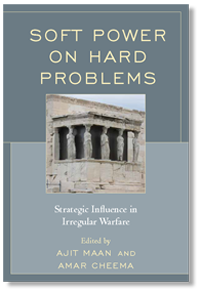
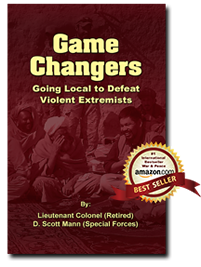
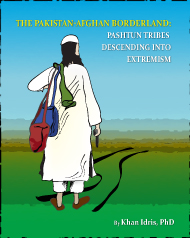
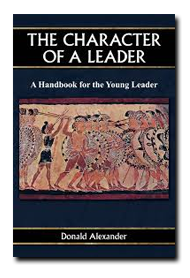
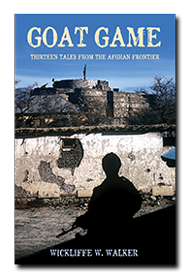
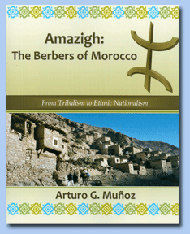
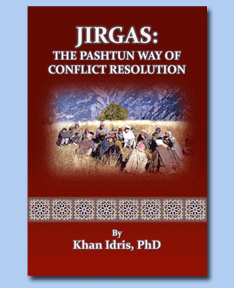
 The Private Journal of
The Private Journal of